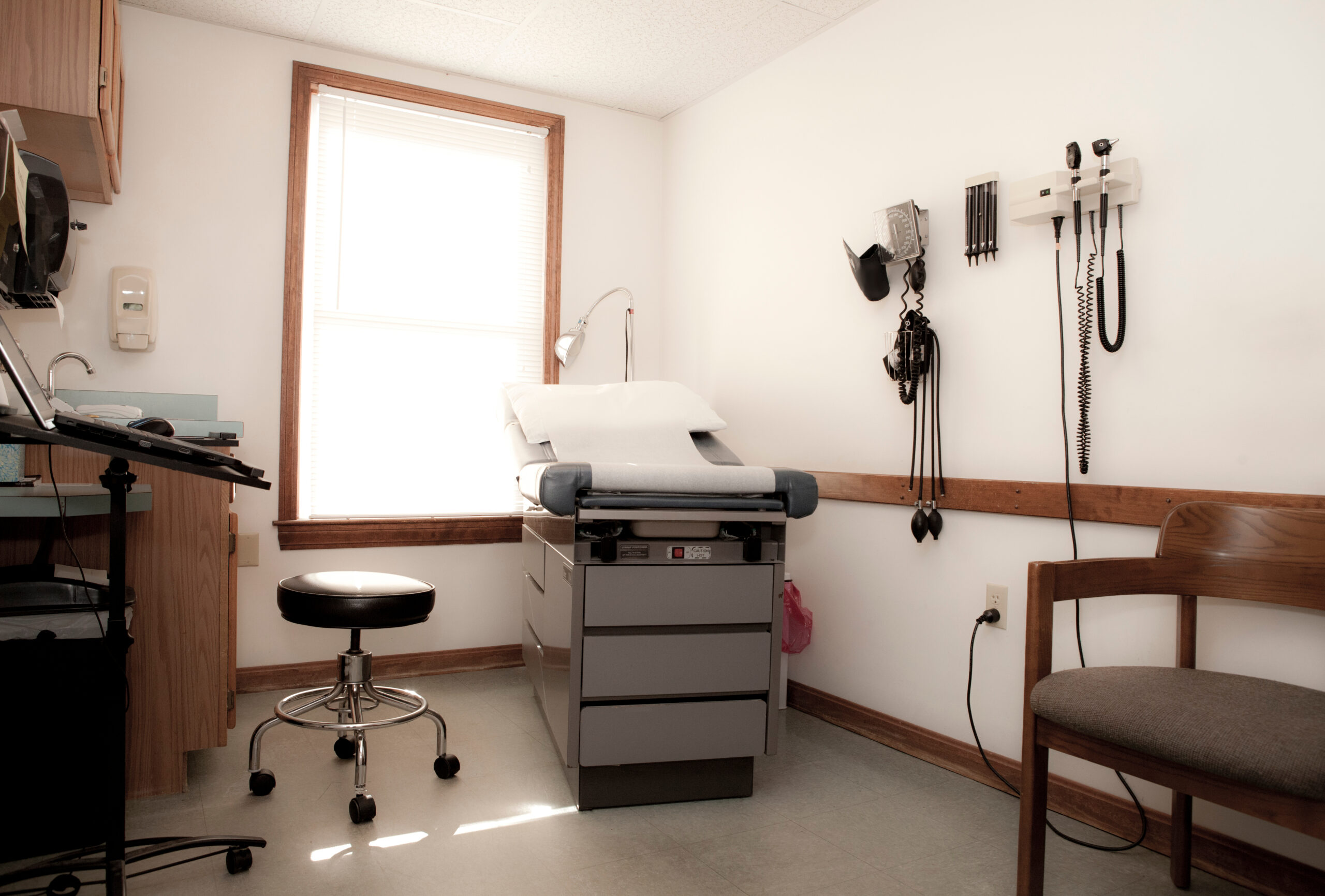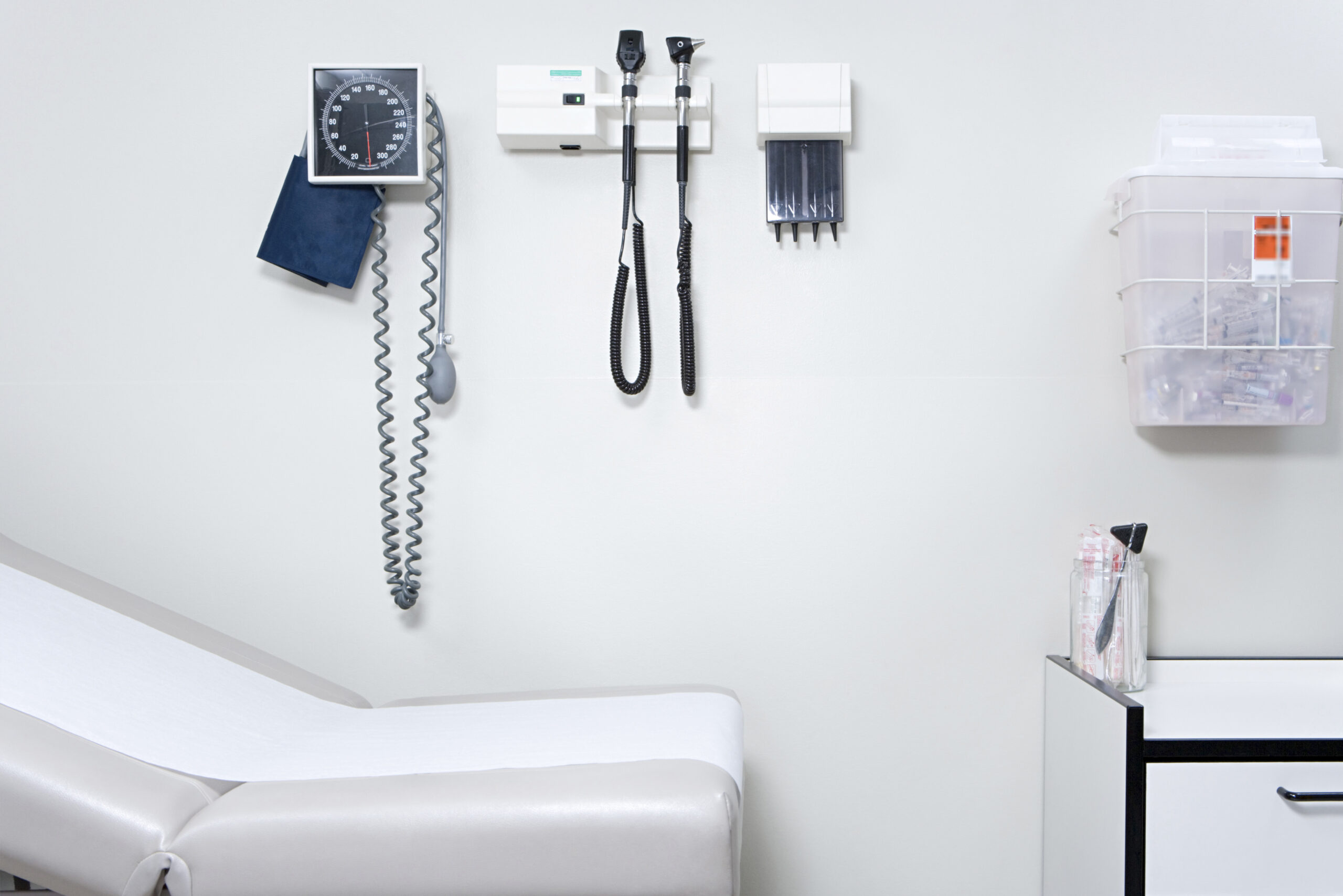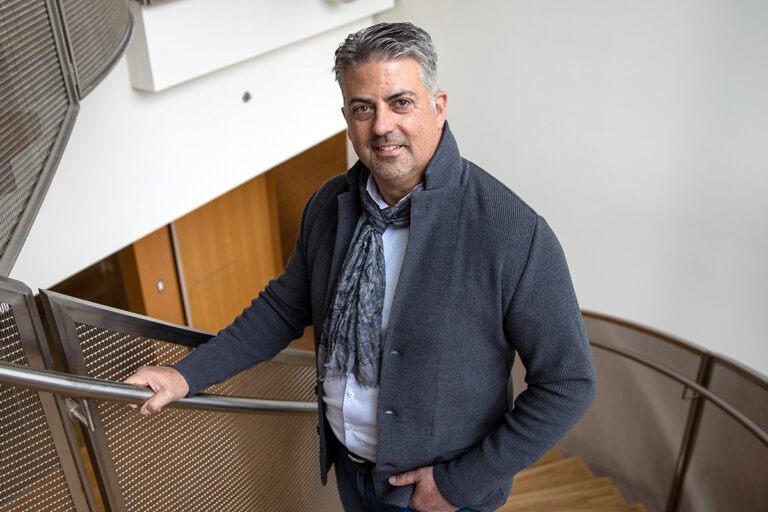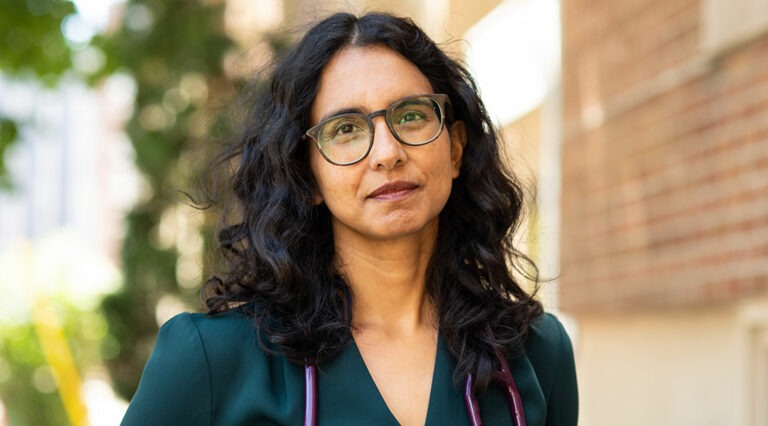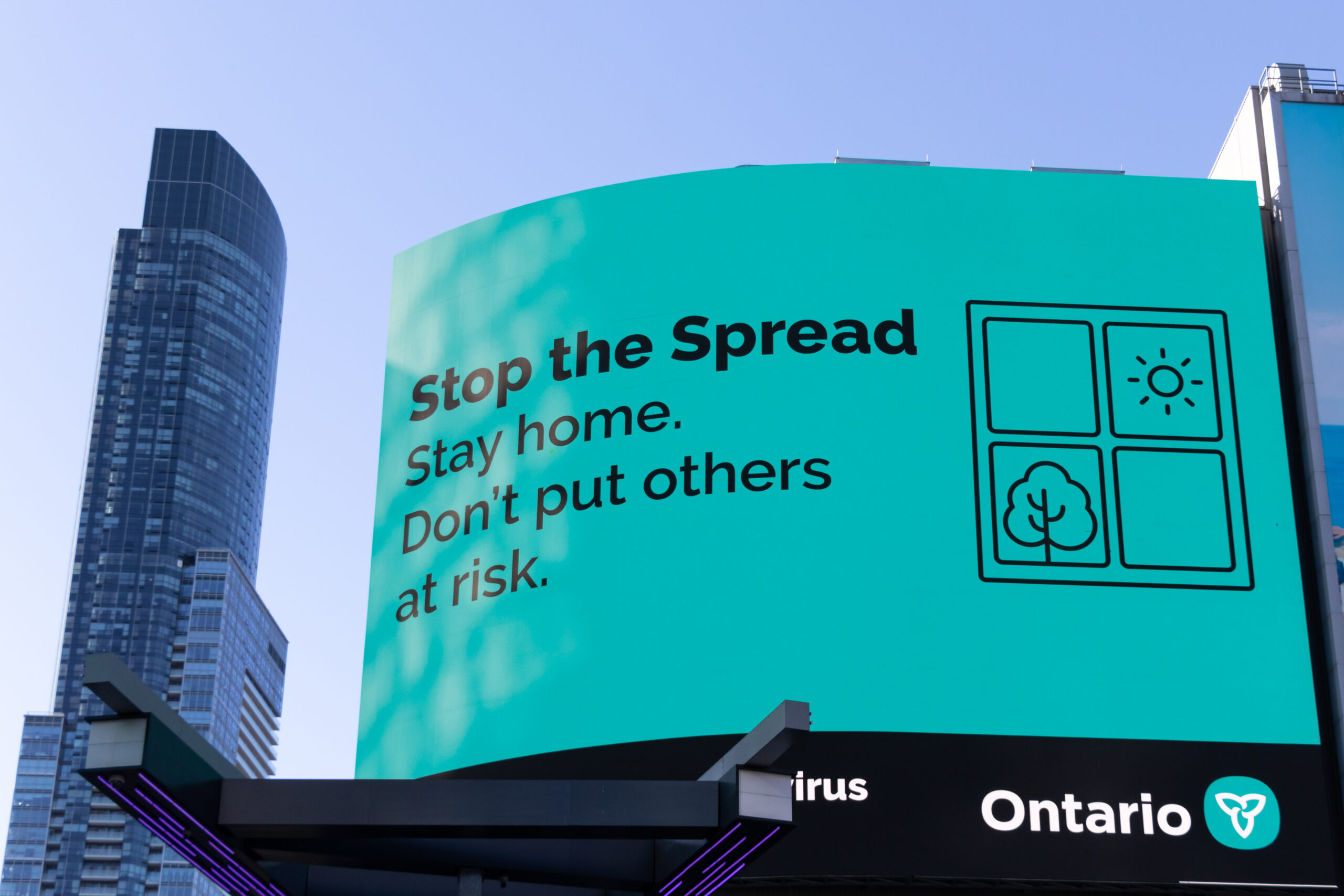The OurCare study found that more than one in five Canadian adults report having no family doctor. Lead scientist, Dr. Tara Kiran, spoke with Vancouver is Awesome about the results. “The degree of provincial variation was surprising,” said Kiran. “We have one country and this study really speaks to how we have 14 different health systems.”
Author: Samira Prasad
One in 5 adults in Canada without access to primary care
This article from Hospital News takes a look at the findings from the OurCare study, recently published in CMAJ. The study surveyed over 9000 people in Canada about their experiences and expectations for primary care in Canada. “The crisis in access to primary care is in stark contrast to the values that people in Canada hold dear – that everyone should have access to health care regardless of where they live and who they are,” says Dr. Kiran.
Study underscores Canadians’ problems with access to care
Dr. Tara Kiran was recently quoted in this Medscape article covering the publishing of the OurCare study findings in CMAJ. OurCare is the largest pan-Canadian primary care study to date. “There’s about 6.5 million people in Canada who don’t have a primary care clinician. Given that primary care is what I think of as the front door to the healthcare system, when that door is closed, it has lots of consequences for your health,” says Dr. Kiran
Canada has a primary health-care crisis. Here’s how to fix it
“In every neighbourhood in the country, just as there are schools for our children, there should be a primary-care home — or centre — served by a team of doctors, nurse practitioners, nurses, dieticians, therapists, social workers, and others,” writes former federal health minister Dr. Jane Philpott. This op-ed for the Toronto Star draws upon MAP’s national OurCare study, lead by Dr. Tara Kiran.
Syphilis cases surge in Canada
Dr. Sean Rourke was quoted in the Niagara Falls Review‘s coverage on the rise in syphilis cases in Canada. in 2022 alone, Canada recorded nearly 14,000 cases of infectious syphilis nationwide, along with 117 instances of early congenital syphilis. This represents a nearly 15-fold increase from just eight cases reported among infants across the country merely five years earlier.
Thousands of Canadians are on doctor wait-lists. Are they effective?
Dr. Tara Kiran recently spoke to CBC News about the need to make family doctor waitlists accessible to vulnerable populations, along with those new to Canada who may not speak the language. Dr. Kiran said she believes a centralized wait-list is the way forward, as there needs to be an organized way for people to access care.
Scientists, clinicians across Canada preparing for future pandemic threats
The Canadian federal government recently announced funding for research projects focused on strengthening Canada’s pandemic preparedness. Dr. Andrew Pinto recently spoke with The Canadian Press about Prepared, a project that will focus on screening for any new viruses or pathogens that start to appear in patients in emergency rooms or primary-care clinics. “As a public health specialist and as a practising physician, I would very much anticipate there being another respiratory pandemic in the future. The challenge is we don’t know when it will be or what it will be,” said Dr. Pinto.
Unity Health Toronto awarded $18.9M to create ‘coast-to-coast shield’ to protect Canada in the next pandemic
By Marlene Leung, Unity Health Toronto
Unity Health Toronto has received $18.9 million in federal funding to create a national pandemic preparedness system that will improve Canada’s capacity to identify and track new pathogens, monitor disease spread and speed up research and development of diagnostic tests, vaccines and therapeutics.
The PREPARED network will enlist up to 50 primary care clinics and emergency departments across Canada, plus research institutions and industry partners to build a coordinated ecosystem that can swiftly respond to new viruses or pathogens. The PREPARED grant is one of the largest operating grants Unity Health Toronto has received.
The goal is to prepare Canada for the next pandemic — which is only a matter of time, says Dr. Andrew Pinto, project lead and scientist and family physician at St. Michael’s Hospital, a site of Unity Health Toronto.
“I was in medical school during SARS and joined meetings that tried to tackle the rapid spread of a novel virus. Even with learnings from other flu pandemics, Canada still faced the same challenges when COVID arrived,” said Pinto, who is also the director of the Upstream Lab. “We didn’t have an early warning system. We didn’t have a coordinated system to rapidly enroll patients in critical research studies.”
The funding from the Canada Biomedical Research Fund (CBRF) was announced on May 6 in Montreal. PREPARED is one of four research programs endorsed by the Canadian Hub for Health Intelligence and Innovation in Infectious Diseases (HI3) that was funded by CBRF in 2023 with a mandate to bolster Canada’s biomanufacturing capacity and readiness to respond to emerging health threats.
A new ecosystem built on primary care
The goal of the PREPARED network is to build an ecosystem that can be activated from the moment there is news of a novel pathogen emerging, says Norman Umali, Upstream Lab, St. Michael’s Hospital research pharmacist and project team member.
In the new ecosystem, primary care clinics and emergency departments across Canada would be on alert for any signs of the new pathogen. When a patient goes to their family physician or local emergency department showing symptoms, the patient would be assessed and given a diagnostic test that would confirm within minutes whether the patient has the virus. Swabs from the positive patient would be taken to help identify and sequence the exact pathogens circulating in the community. These samples could also be used to help build the next diagnostic test or vaccine.
Data from patients’ electronic records could be rapidly and securely accessed to support clinicians in decision making, while also contributing to national disease surveillance efforts. As well, patients who test positive would be invited to participate in research studies and trials to gain access to the latest therapies and to help determine which therapies are beneficial.
The ecosystem builds on a Canadian network of primary care clinics and emergency departments. The project team includes leaders of 16 primary care research networks that collectively serve more than 2.5 million Canadians, from British Columbia, Alberta, Manitoba, Ontario, Quebec and Newfoundland and Labrador.
The team has also consulted and will collaborate with 11 industry partners with expertise in specimen collection, diagnostics, genomics, surveillance and data management, therapeutics, gene therapies and vaccine development.
Building a resilient, adaptable system
Beyond tracking acute respiratory infections, the team sees other future applications for this model, says Dr. Benita Hosseini, Upstream Lab research scientist and project co-lead.
“We would like to adapt the ecosystem to track other infectious diseases, such as mpox, or other chronic conditions. It could also be adapted to perform surveillance during other public health emergencies, such as those driven by climate change,” she said. The goal is to build an adaptable, patient-centered healthcare system, to improve our readiness for current and future health challenges and for transforming healthcare efficiency and effectiveness.
Part of the project is to train the next generation of researchers through the PREPARED Talent Development Program, Hosseini adds. In this program, trainees can choose a learning stream to focus on surveillance, data science, Implementation Science or Community-Based Participatory Research.
Pinto notes that in the United Kingdom, clinicians were able to quickly enroll patients into clinical trials within weeks of the first COVID cases being detected. As a result, the U.K. led the world in understanding what therapies worked in treating COVID, he said. One of the goals of PREPARED is to facilitate linkages to research trials by integrating recruitment efforts within primary care clinics and emergency departments, he said.
“We are excited about the opportunity to create a coast-to-coast shield that will help protect Canada and Canadians in the future,” said Pinto.
Staples Canada and MAP launch the largest Even the Odds fundraising campaign to date with ‘Close the Gap’
From now until May 26, Staples will match all donations up to $500,000 in support of MAP
Richmond Hill, ON, May 6, 2024 – Staples Canada is amplifying its support for MAP, Canada’s largest health equity research centre, to ‘Close the Gap’ on inequity in Canada. This campaign marks the fourth year of its Even The Odds partnership with the world-renowned organization. ‘Close the Gap’ is a campaign that exposes real health challenges faced by disadvantaged communities across Canada and aims to eliminate critical gaps in health equity. Funds raised will continue to support vital programming for underserved communities, working to help end childhood health inequities, break down barriers to care and disease prevention, and create pathways out of chronic homelessness.
“This is an important milestone for our fundraising efforts in support of MAP and we’re immensely proud of the contributions the Even the Odds partnership has made in promoting health equity in communities throughout Canada,” said Rachel Huckle, CEO, Staples Canada. “We look forward to continuing to drive the momentum of awareness of Even the Odds through our Close the Gap campaign and provide vital funding to programs we value deeply, including APPLE Schools, Navigator and Our Healthbox.”
Until May 26, Staples customers can donate to Even the Odds at any one of Staples Canada’s 300+ stores or online at Staples.ca/EvenTheOdds. Staples will match all donations up to $500,000. Donations will help fund the life-saving research and solutions that MAP and its scientists are doing to help build more equitable communities.
Staples’ Even the Odds campaign surpasses $5-million fundraising milestone
Since its launch in 2021, the Even the Odds campaign has raised more than $5 million – surpassing its campaign goal thanks to the support of Staples’ customers, associates, vendor-partners, and corporate match donations.
With this funding, Staples and MAP have expanded their equity-building initiatives throughout Canada to create meaningful and lasting impact in underserved communities, which include:
- Supporting a healthy start for almost 5,000 children in underserved communities: In 2023, Even the Odds expanded its support of award-winning health promotion initiative APPLE Schools, bringing it to new elementary schools in Ontario and continuing to support schools in Alberta. APPLE Schools helps children in underserved communities to eat better, move more and feel happier – learning healthy habits that last a lifetime.
- Helping to create the largest cross-Canada conversation about the future of primary care: In 2022-2023, MAP’s OurCare research group surveyed and engaged nearly 10 thousand Canadians to determine the public’s expectations, how they define good primary care, and what policy changes they recommend to shape a stronger, more equitable system. Read about the results and next steps here.
- Launching the first Our Healthbox’s in Canada: In 2023, Even The Odds helped launch Canada’s first Our Healthbox “smart” vending machines, dispensing hundreds of free HIV self-tests, naloxone kits and other health supplies on demand to improve access to care and disease prevention in the maritime provinces.
- Expanding MAP’s innovative Navigator program, designed to help break the cycle of homelessness and poor health. In 2023, MAP brought Navigator to British Columbia. The hospital-based outreach program helps unhoused patients recover after injury or illness and connects them to vital community services.
“Thanks to Even the Odds fundraising, we have been able to develop and implement innovative tools and programs to communities across Canada, and – most importantly – create lasting impacts,” said Dr. Stephen Hwang, Director, MAP. “The past three years of our partnership with Staples has set the bar high, and we look forward to continue our work in building communities that Close the Gap on inequities.”
Starting today, Staples is increasing support for Even the Odds through the launch of the Close the Gapmarketing campaign – the largest fundraising campaign in the partnership’s history. The mass media marketing campaign aims to raise awareness of the need to end health inequities and close Canada’s health gap. Funds raised will continue to support vital programming for underserved communities across Canada, working to help end childhood health inequities, break down barriers to care and disease prevention, and create pathways out of chronic homelessness. The integrated campaign will be featured in television, digital, and outdoor signage assets, and across all Staples stores in Canada.
About MAP
MAP is Canada’s largest research centre focused on health equity and the social determinants of health. Internationally recognized for groundbreaking science and innovation, MAP develops and implements real-world, evidence-driven program and policy solutions that disrupt cycles of socioeconomic exclusion and poor health. For more than 25 years, MAP has partnered with communities and policy makers across the country to take on complex issues such as homelessness, intimate partner violence, inequitable access to healthcare and the prevention of opioid-related harms. MAP’s impacts span from local to national and beyond. MAP’s vision is a healthier future for all. MAP is based at St. Michael’s Hospital, a fully affiliated University of Toronto teaching and research-intensive hospital and hub for care in downtown Toronto. St. Michael’s Hospital is a site of Unity Health Toronto, a hospital network serving patients, residents and clients across the full spectrum of care. Learn more at maphealth.ca
About Staples Canada
Staples Canada is The Working and Learning Company. We are a privately-owned company committed to helping parents, teachers, businesses, and entrepreneurs work smarter, learn more and grow every day. Our network includes 300+ stores across Canada and staples.ca, printing and shipping services at Staples Print, and Staples Studio co-working spaces. To service the unique needs of businesses, we also have a number of dedicated B2B brands that support business customers of all sizes, which include Staples Preferred, Staples Professional, Supreme Office Supplies and Furniture, Denis Office Supplies, Monarch Office Supply Inc. and Beatties. Headquartered in Richmond Hill, Ontario, we are committed to the communities we serve across Canada, and are a proud partner of MAP through our Even The Odds fundraising and awareness initiative that aims to eliminate critical gaps in health equity. Visit staples.ca for more information or engage with @StaplesCanada on Facebook, Twitter, Instagram, LinkedIn, or TikTok.
Media information:
Staples Canada: Kathleen Stelmach, 905-737-1147 Ext. 578, kathleen.stelmach@staples.ca
Golin, for Staples Canada: Meg Murphy, 647-475-4495, mmurphy@golin.com
Staples Canada/Bureau en Gros et le Centre MAP lancent la plus importante campagne de collecte de fonds À chance égale à ce jour avec « Changer la donne »
Jusqu’au 26 mai, Staples/Bureau en Gros versera une somme équivalente à tous les dons jusqu’à concurrence de 500 000 $ en soutien au Centre MAP
RICHMOND HILL, ONTARIO, le 6 mai 2024 — Staples Canada/Bureau en Gros renforce son soutien au Centre MAP, le plus grand centre de recherche à l’échelle nationale sur l’équité en matière de santé pour « Changer la donne » sur les inégalités au pays. Cette campagne marque la quatrième année de son partenariat À chance égale avec le centre de recherche de renommée mondiale. La campagne « Changer la donne » met en lumière les véritables problèmes de santé auxquels sont confrontées les communautés urbaines défavorisées du pays et vise à combler les écarts critiques en matière d’équité en santé. Les fonds collectés continueront à soutenir des programmes vitaux pour les communautés mal desservies, afin de mettre fin aux inégalités en matière de santé infantile, d’éliminer les obstacles aux soins et à la prévention des maladies, et de créer des moyens de sortir de l’itinérance chronique.
« Il s’agit d’une étape importante dans nos efforts de collecte de fonds en soutien au Centre MAP et nous sommes immensément fiers des contributions que le partenariat À chance égale a apportées à la promotion de l’équité en matière de santé dans les communautés partout au pays », a déclaré Rachel Huckle, PDG de Staples Canada/Bureau en Gros. « Nous nous réjouissons de continuer à faire connaître À chance égale par le biais de notre campagne “Changer la donne” et de fournir un financement vital aux programmes qui nous tiennent à cœur, notamment APPLE Schools, Navigateur et Notre Boîtesanté. »
Jusqu’au 26 mai, les clients pourront faire un don au profit de la campagne À chance égale dans l’un des 300 magasins de Staples/Bureau en Gros ou en ligne à bureauengros.com/achanceegale. Staples/Bureau en Gros versera une contribution équivalente à chaque don jusqu’à concurrence de 500 000 $. Les dons permettront de financer les recherches et les solutions vitales que le Centre MAP et ses scientifiques mettent en œuvre pour aider à bâtir des communautés plus équitables.
La campagne « À chance égale » de Staples/Bureau en Gros dépasse 5 millions de dollars de collecte de fonds
Depuis son lancement en 2021, la campagne À chance égale a récolté plus de 5 millions de dollars, dépassant ainsi son objectif grâce au soutien des clients, des associés et des fournisseurs de Staples/Bureau en Gros, ainsi qu’aux dons équivalents effectués par Staples/Bureau en Gros.
Grâce à ce financement, Staples/Bureau en Gros et le Centre MAP ont élargi leurs initiatives de renforcement de l’équité partout au pays afin de créer un impact significatif et durable dans les communautés mal desservies, notamment :
- Soutenir un départ sain pour près de 5000 enfants dans des communautés mal desservies : En 2023, À chance égale a élargi son soutien à l’initiative primée de promotion de la santé APPLE Schools, en l’introduisant dans de nouvelles écoles élémentaires en Ontario et en continuant à soutenir les écoles de l’Alberta. Le programme APPLE Schools aide les enfants des communautés mal desservies à mieux manger, à bouger plus et à se sentir plus heureux en acquérant des habitudes saines qui durent toute la vie.
- Aider à créer la plus grande conversation pancanadienne sur l’avenir des soins primaires : En 2022-2023, le groupe de recherche NosSoins du Centre MAP a sondé près de 10 000 Canadiens afin de déterminer les attentes du public, la façon dont ils définissent de bons soins primaires et les changements politiques qu’ils recommandent pour façonner un système plus fort et plus équitable. Lisez les résultats et les prochaines étapes ici.
- Lancement des premières Notre Boîtesanté au Canada : En 2023, la campagne À chance égale a aidé à lancer notre première distributrice « intelligente » Notre Boîtesanté au pays, distribuant des centaines d’autotests de dépistage du VIH gratuits, des trousses de naloxone et d’autres fournitures de santé sur demande afin d’améliorer l’accès aux soins et la prévention des maladies dans les provinces de l’Atlantique.
- Élargir le programme novateur Navigateur du centre MAP, conçu pour aider à briser le cycle de l’itinérance et de la mauvaise santé. En 2023, le centre MAP a introduit Navigateur en Colombie-Britannique. Le programme de sensibilisation en milieu hospitalier aide les patients sans-logis à se rétablir d’une blessure ou d’une maladie et les met en contact avec des services communautaires essentiels.
« Grâce aux fonds recueillis par À chance égale, nous avons été en mesure de développer et de mettre en œuvre des outils et des programmes novateurs dans les communautés partout au pays et, surtout, de créer des résultats durables », a déclaré le Dr Stephen Hwang, directeur du centre MAP. « Les trois dernières années de notre partenariat avec Staples/Bureau en Gros ont placé la barre haute et nous sommes impatients de poursuivre notre travail pour bâtir des communautés qui changent la donne en matière d’inégalités. »
Dès d’aujourd’hui, Staples/Bureau en Gros accroît son soutien à l’initiative À chance égale en lançant la campagne de marketing Changer la donne, la plus grande campagne de collecte de fonds de l’histoire du partenariat. La campagne de marketing dans les médias vise à sensibiliser la population à la nécessité de mettre fin aux inégalités en matière de santé et de combler les écarts dans ce domaine au pays. Les fonds récoltés continueront à soutenir des programmes essentiels pour les communautés mal desservies à travers le pays, afin d’aider à mettre fin aux inégalités en matière de santé infantile, d’éliminer les obstacles aux soins et à la prévention des maladies, et de créer des moyens de sortir de l’itinérance chronique. La campagne intégrée sera diffusée à la télévision, dans les médias numériques et par le biais d’affichage extérieur, ainsi que dans tous les magasins Staples/Bureau en Gros du pays.
À propos du Centre MAP
Le Centre MAP est le plus grand centre de recherche au Canada axé sur l’équité en matière de santé et les déterminants sociaux de la santé. Reconnu à l’échelle internationale pour sa science et son innovation révolutionnaires, le Centre MAP élabore et met en œuvre des programmes et des politiques concrets fondés sur des données probantes qui rompent les cycles d’exclusion socioéconomique et de mauvaise santé. Depuis plus de 25 ans, le Centre MAP travaille en partenariat avec des communautés et des décideurs politiques partout au pays pour aborder des questions complexes telles que l’itinérance, la violence conjugale, l’accès inéquitable aux soins de santé et la prévention des effets nocifs liés aux opioïdes. Les répercussions du Centre MAP s’étendent de l’échelle locale à l’échelle nationale et au-delà. La vision du Centre MAP est un avenir plus sain pour tous. Le Centre MAP est basé à l’hôpital St. Michael, un centre hospitalier universitaire entièrement affilié à l’Université de Toronto et un centre de soins dans le centre-ville de Toronto. L’hôpital St. Michael est un site du réseau hospitalier Unity Health Toronto dévoué au service des patients, des résidents et des clients dans toute la gamme des soins. Pour en savoir plus, consultez maphealth.ca/fr
À propos de Staples Canada/Bureau en Gros
Staples Canada/Bureau en Gros est l’Entreprise du travail et de l’apprentissage. Nous sommes une entreprise privée dévouée à aider les parents, les enseignants, les entreprises et les entrepreneurs à travailler plus intelligemment, à apprendre davantage et à évoluer chaque jour. Notre réseau comprend plus de 300 magasins au pays ainsi que bureauengros.com, les services d’impression et d’expédition d’Impression Bureau en Gros et les espaces de travail partagés de Staples Studio. Pour répondre aux besoins uniques des entreprises, nous proposons également plusieurs bannières interentreprises dédiées à soutenir les clients commerciaux de toutes tailles, dont Bureau en Gros Privilège, Staples Professionnel, Supreme Office Supplies and Furniture, Fournitures de bureau Denis, Monarch Office Supply inc. et Beatties. Nous sommes basés à Richmond Hill, en Ontario, et nous sommes engagés envers les communautés que nous desservons partout au pays en plus d’être un fier partenaire du Centre MAP par l’entremise de notre initiative de collecte de fonds et de sensibilisation À chance égale, qui vise à éliminer les lacunes critiques en matière d’accès équitable aux soins de santé. Visitez bureauengros.com pour obtenir plus d’informations ou suivez-nous à @bureauengros sur Facebook, Twitter, Instagram, LinkedIn ou TikTok.
Renseignements pour les médias :
Staples Canada/Bureau en Gros : Kathleen Stelmach, 905 737-1147, poste 578, kathleen.stelmach@staples.ca
Golin, pour Staples Canada/Bureau en Gros : Meg Murphy, 647 475-4495, mmurphy@golin.com
Study shows most people experiencing homelessness have mental health disorders
For Medscape Medical News, Dr. Stephen Hwang recently commented on a University of Calgary study that showed most people experiencing homelessness have mental health disorders.

